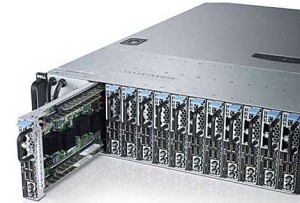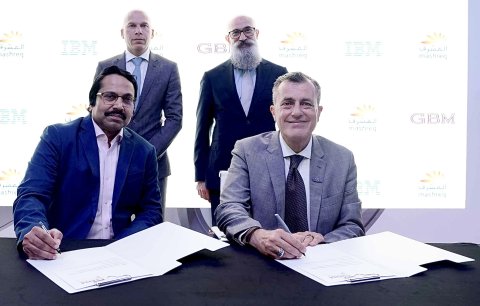 Dell will give its first public demonstration of a 64-bit ARM server this week, the latest step in an industrywide effort to build servers based on low-power chips like those used in smartphones.
Dell will give its first public demonstration of a 64-bit ARM server this week, the latest step in an industrywide effort to build servers based on low-power chips like those used in smartphones.
Dell will show a server based on a 64-bit ARM processor from AppliedMicro running the Fedora version of Linux and hooked up to a storage system from PMC-Sierra, Dell said.
It plans to show the system at ARM’s annual TechCon conference in Santa Clara, California, which kicks off Tuesday, and it aims to have a system with the AppliedMicro chip ready for “proof of concept” testing by customers in early 2014.
“This is a key milestone for customers seeking to run real-world workloads on 64-bit ARM technology,” Dell executive Robert Hormuth will announce in a blog post this week, according to a copy of the post sent to IDG News Service.
Hewlett-Packard, meanwhile, is moving forward with its own low-power server plans. HP will offer a new 32-bit ARM processor from Calxeda, the EnergyCore ECX-2000, for its Moonshot server system in the first half of next year, HP said via email on Monday. And a Moonshot cartridge based on Intel’s 64-bit “Avoton” Atom processor will be available next month, HP said.
The Dell system is being developed by Dell’s Data Center Solutions division, which builds custom hardware for big Internet companies. Dell didn’t say when it will put a 64-bit ARM server on sale.
It’s the latest step in an effort to develop servers based on a processor architecture developed by ARM Holdings, which provides the chip designs used in most of today’s popular smartphones and tablets. Other companies, such as Qualcomm and Apple, license those designs and incorporate them into systems on chip (SOCs).
ARM chips are being eyed for servers because they consume very little power. The explosion in online computing has left big data centers struggling to control their power consumption. The processors aren’t very powerful, however, and the servers will be used for running lightweight, high-volume transactions, rather than big Oracle or SAP business applications.
“We believe the 64-bit ARM-based processor demonstrates promise for storage and Web front-end environments, where advantages in dollars per gigabyte, watts per gigabyte, performance per dollar, and performance per watt are critical,” Hormuth says in his blog post.
Dell’s demonstration is significant because 64-bit processors are seen as essential for running server workloads. Existing ARM processors have all been 32-bit designs, which limits the amount of memory they can address, and thus the applications they can run.
Calxeda, Advanced Micro Devices and Broadcom are among the other firms developing ARM chips for servers. Calxeda is developing 64-bit versions of its ARM processors, code-named Lago and Sarita, and they’ll be available in servers a year from now, Calxeda said on Monday.
Intel has responded to the challenge by developing versions of its low-power Atom chips for servers. HP’s current Moonshot server uses Intel’s Atom S1260 processor, known as Centerton. But the “Avoton” chip that HP will offer next month is a far more capable part, according to Intel.
Intel claims that Avoton is six times more power-efficient than Centerton. It’s based on Intel’s new Silvermont core and manufactured on an advanced 22-nanometer process.





